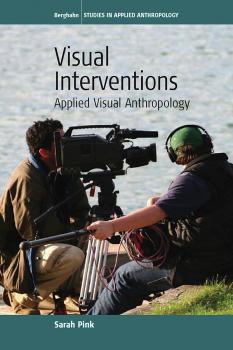ТОП просматриваемых книг сайта:
Studies in Public and Applied Anthropology
Скачать книги из серии Studies in Public and Applied AnthropologyTheoretical Scholarship and Applied Practice - Группа авторов
Studies in Public and Applied AnthropologyАннотация
Academics across the globe are being urged by universities and research councils to do research that impacts the world beyond academia. Yet to date there has been very little reflection amongst scholars and practitioners in these fields concerning the relationship between the theoretical and engaged practices that emerge through such forms of scholarship. Theoretical Scholarship and Applied Practice investigates the ways in which theoretical research has been incorporated into recent applied practices across the social sciences and humanities. This collection advances our understanding of the ethics, values, opportunities and challenges that emerge in the making of engaged and interdisciplinary scholarship.
Аннотация
Devil worship, black magic, and witchcraft have long captivated anthropologists as well as the general public. In this volume, Jean La Fontaine explores the intersection of expert and lay understandings of evil and the cultural forms that evil assumes. The chapters touch on public scares about devil-worship, misconceptions about human sacrifice and the use of body parts in healing practices, and mistaken accusations of children practicing witchcraft. Together, these cases demonstrate that comparison is a powerful method of cultural understanding, but warns of the dangers and mistaken conclusions that untrained ideas about other ways of life can lead to.
Аннотация
Using a “vertical slice” approach, anthropologists critically analyze the relationship between undemocratic uses and abuses of power and the survival of the human species. The contributors scrutinize modern institutions in a variety of regions—from Russia and Mexico to South Korea and the U.S. Up, Down, and Sideways is an ethnographic examination of such phenomena as debtculture, global financial crises, food insecurity, indigenous land and resource appropriation, the mismanagement of health care, andcorporate surrogacy within family life. With a preface by Laura Nader, this isessential reading for anyone seeking solid theories and concrete methods to inform activist scholarship.
Аннотация
At the beginning of the twenty-first century the demand for anthropological approaches, understandings and methodologies outside academic departments is shifting and changing. Through a series of fascinating case studies of anthropologists’ experiences of working with very diverse organizations in the private and public sector this volume examines existing and historical debates about applied anthropology. It explores the relationship between the «pure and the impure» – academic and applied anthropology, the question of anthropological identities in new working environments, new methodologies appropriate to these contexts, the skills needed by anthropologists working in applied contexts where multidisciplinary work is often undertaken, issues of ethics and responsibility, and how anthropology is perceived from the ‘outside’. The volume signifies an encouraging future both for the application of anthropology outside academic departments and for the new generation of anthropologists who might be involved in these developments.
Аннотация
Businesses and other organizations are increasingly hiring anthropologists and other ethnographically-oriented social scientists as employees, consultants, and advisors. The nature of such work, as described in this volume, raises crucial questions about potential implications to disciplines of critical inquiry such as anthropology. In addressing these issues, the contributors explore how researchers encounter and engage sites of organizational practice in such roles as suppliers of consumer-insight for product design or marketing, or as advisors on work design or business and organizational strategies. The volume contributes to the emerging canon of corporate ethnography, appealing to practitioners who wish to advance their understanding of the practice of corporate ethnography and providing rich material to those interested in new applications of ethnographic work and the ongoing rethinking of the nature of ethnographic praxis.
Аннотация
Anthropological interest in new subjects of research and contemporary knowledge practices has turned ethnographic attention to a wide ranging variety of professional fields. Among these the encounter with international development has perhaps been longer and more intimate than any of the others. Anthropologists have drawn critical attention to the interfaces and social effects of development’s discursive regimes but, oddly enough, have paid scant attention to knowledge producers themselves, despite anthropologists being among them. This is the focus of this volume. It concerns the construction and transmission of knowledge about global poverty and its reduction but is equally interested in the social life of development professionals, in the capacity of ideas to mediate relationships, in networks of experts and communities of aid workers, and in the dilemmas of maintaining professional identities. Going well beyond obsolete debates about ‘pure’ and ‘applied’ anthropology, the book examines the transformations that occur as social scientific concepts and practices cross and re-cross the boundary between anthropological and policy making knowledge.









